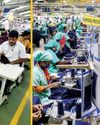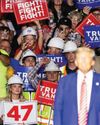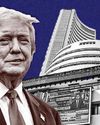India’s NPA-ridden banks find a magic wand in IBC

If the present government’s biggest structural reform – implementation of Goods and Services Tax – has not yet delivered to its potential; the second big reform in the form of Insolvency and Bankruptcy Code (IBC) has shown visible effect on the financial life of the economy. It has brought significant behavioural changes and has re-written the terms of commitment between lenders and debtors that was largely in favour of big borrowers for years.
After the successful sale of Bhushan Steel, the Insolvency and Bankruptcy Code seems to have appeared as a magic wand to India’s NPA-ridden commercial banks. Bhushan Steel owes close to ₹48,000 crore to banks and was referred to the NCLT by Punjab National Bank last year.
Look at the fact: Tata Steel’s acquisition of Bhushan Steel alone is estimated to reduce banks’ NPAs by ₹35,000 crore. An elated financial services secretary Rajeev Kumar has reportedly, said. “IBC is transforming credit culture in New India. About ₹ 35,000 crore reductions of NPAs of PSBs (Public Sector Banks) in Bhushan Steel case is a major development. Reduction of NPAs in individual PSBs would range from about ₹500 crore to over ₹10,000 crore, he has said.
Encouraged by the successful conclusion of the Bhushan Steel case, the finance ministry expects banks to write back more than ₹1 lakh crore after the resolution of all 12 NPA cases referred to insolvency proceedings by the RBI in its first list. About 40% of Indian banks’ non-performing assets are undergoing resolution under the National Company Law Appellate Tribunal (NCLT), which started in July 2017.
この記事は BUSINESS ECONOMICS の June 1-15, 2018 版に掲載されています。
7 日間の Magzter GOLD 無料トライアルを開始して、何千もの厳選されたプレミアム ストーリー、9,000 以上の雑誌や新聞にアクセスしてください。
すでに購読者です ? サインイン
この記事は BUSINESS ECONOMICS の June 1-15, 2018 版に掲載されています。
7 日間の Magzter GOLD 無料トライアルを開始して、何千もの厳選されたプレミアム ストーリー、9,000 以上の雑誌や新聞にアクセスしてください。
すでに購読者です? サインイン

Bank of Baroda, Kolkata Zone organised Mega Kisan Melas in West Bengal
Bank of Baroda (BOB) organised Mega Kisan Mela at Konkalitala in Birbhum District of West Bengal on November 18, 2024 as a part of the 7th Edition of the Baroda Kisan Pakhwada (BKP).

Time-Bound Disposal of Cases to Expedite the Delivery of Justice and affordabe by all in India
The delay in the disposal of cases in Indian courts remains a significant hurdle to the nation's progress.

Dev Deepawali: A grand celebration of light, spirituality, and culture in Varanasi
The holy city of Varanasi, often regarded as India's spiritual and cultural heart, came alive with the splendor of Dev Deepawali on the sacred day of Kartik Purnima.

The life of Job 'Ye judge not the judgment of God' - Jesus Christ
The Holy Bible reveals through the life of Job how the Lord tests the righteous and that faith helps one to overcome life's adversities.

India has the highest potential for the garment industry, only a conducive government policy is required.
India's textile industry is poised for remarkable growth, with expectations to double its contribution to the GDP within the next six to seven years.

Global Public Debt may be worse than it appears, warns IMF
Global Public Debt Set to Exceed $100 Trillion, Warns IMF

The economic consequences of Trump's Presidency: A global perspective
One of the key economic factors contributing to the Democrats' loss in the US elections was the significant rise in inflation, which was initially triggered by the COVID-19 pandemic and exacerbated by the Russia-Ukraine war.

Challenges and Successes in West Bengal's Education Sector: A Comprehensive Overview
The education system in West Bengal, particularly in districts, villages, slums, and government institutions, reflects a blend of progress and ongoing challenges.

What India can expect from Trump's return
I may be too early to predict how Donald Trump's second term as president will impact the global oil market.

Stocks Surge Following Donald Trump's Election as 47th President of the USA
Stocks soared following the election of Donald Trump as the 47th President of the United States. Investors anticipated that the Information Technology (IT) sector would benefit from lower corporate taxes under the Republican regime, with IT stocks leading the rally.